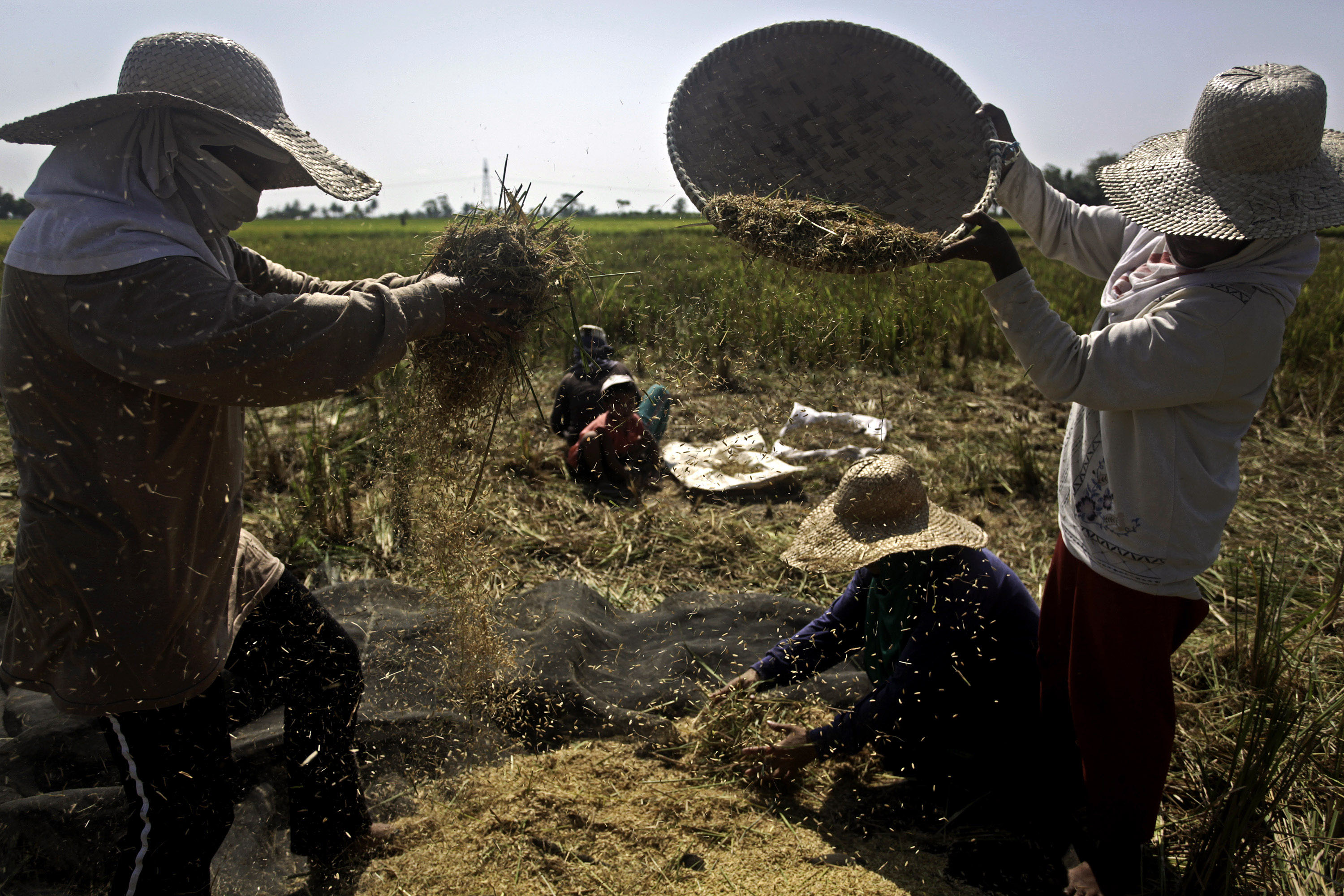Post-harvest facilities a game changer for Pinoy farmers, says House bill
At A Glance
- Increasing the income of local farmers is just a matter of putting up more posthavest facilities.
- This is the gist of House Bill (HB) No.7711, titled An Act providing post-harvesr facilities for palay and rice farmers. It was filed by Davao City 1st district Rep. Paolo Duterte, Benguet lone district Rep. Eric Yap, and ACT-CIS Partyl-ist Rep. Edvic Yap.

(Bloomberg)
Increasing the income of local farmers is just a matter of putting up more post-harvest facilities.
This is the gist of House Bill (HB) No.7711, titled An Act providing post-harvest facilities for palay and rice farmers. It was filed by Davao City 1st district Rep. Paolo Duterte, Benguet lone district Rep. Eric Yap, and ACT-CIS Party-list Rep. Edvic Yap.
“While the government is focused on intervention programs to boost rice production, the impact of these initiatives will significantly be lessened if rice-producing areas lack the facilities they badly need to reduce post-production losses,” Duterte said.
Duterte, who is on his second term in the House of Representatives, said this initiative could begin with the construction of a rice mill and a warehouse in every legislative district with at least one rice-producing town. Rice is the staple food of Filipinos.
A study done by the Philippine Center for Postharvest Development and Mechanization (Philmech), an attached agency of the Department of Agriculture (DA), found that post-harvest losses among major farm commodities in the Philippines range from 10 to 50 percent of production output. This means that at least 10 percent to about half of all land, inputs, and labor used to produce rice and other major crops go to waste.
"Cutting post-harvest wastage by even 1 percent through the construction of basic facilities like rice mills and warehouses, could significantly boost local production and raise the incomes of our palay farmers,” Duterte said.
“Equally focusing on preventing post-harvest losses would not only turn this wastage into higher profits for our farmers, but would also help bring down prices of locally produced rice,” noted the Davao lawmaker.
Duterte said passing HB No.7711 into law could later encourage the private sector to invest in modern storage solutions and new technologies to augment, or improve upon, the basic post-harvest facilities constructed under the measure.
Under the measure, the DA and Department of Agrarian Reform (DAR) will be tapped as the implementing agencies. They will be tasked to coordinate with the Department of Public Works and Highways (DPWH) and consult with farmers’ cooperatives.
The Department of Trade and Industry (DTI), in consultation with the DA, DAR and farmers’ cooperatives, shall provide the equipment and machineries, including transport facilities, necessary to complement and operate the warehouses and rice mills, according to the bill.
Warehouses and rice mills, including the equipment, machineries and transport facilities required to operate them must later be sold to the beneficiary farmers’ cooperatives.
The beneficiary cooperatives shall be given 25 years within which to amortize the cost of these facilities without interest, Duterte said.
HB No.7711 provides for an appropriation of P1 billion for the initial implementation of the post-harvest program.